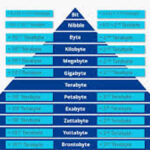Redactle is an online puzzle game that challenges players to uncover a hidden article by guessing words, revealing them piece by piece until the full text emerges. At its core, Redactle blends the thrill of mystery with the satisfaction of linguistic deduction, requiring no prior topic knowledge—only sharp reasoning and a knack for pattern recognition. In the very first moves, a player might feel as if they are staring into a sea of blacked-out lines, yet each correct guess feels like pulling a thread that unravels the whole story. This makes Redactle accessible to casual players while still offering immense depth for word-game enthusiasts. Its design is deceptively simple: guess a word, and if it appears in the text, it will be revealed wherever it occurs. The challenge lies in deducing the subject of the article from partial clues, a process that can take anywhere from a few minutes to several hours. Over time, the game has evolved into more than just an online pastime—it has become a mental workout for players seeking intellectual engagement in a distraction-heavy digital world. Redactle’s rise mirrors the popularity of other minimalist yet deeply strategic word games, proving that complexity can come from interaction rather than visuals. It isn’t just about winning; it’s about how you think, adapt, and refine your approach with each play.
Origins and Conceptual Roots of Redactle
The inspiration behind Redactle is rooted in the tradition of redacted documents—classified government files with most text obscured, leaving only tantalizing fragments visible. In creating the game, developers sought to combine the visual intrigue of these documents with the mechanics of interactive puzzles. Unlike crossword puzzles or anagrams, Redactle doesn’t hand you clues in a tidy list; instead, you’re working from an incomplete visual record. This method forces the player to think like both a linguist and a detective. While traditional word games often favor players with vast vocabularies, Redactle rewards logical guessing and the ability to infer context from sparse data. The concept has a certain intellectual theatricality to it: you are not merely filling in blanks—you are peeling away layers of secrecy to uncover meaning. Its minimalist digital interface also reflects a broader trend toward “quiet games” in an era of overstimulation, where the mental focus is as rewarding as the outcome.
Gameplay Mechanics Explained
At first glance, Redactle presents a nearly blank page, with only a few unredacted connector words such as “the,” “of,” and “and” visible. Players type a guess into a text box; if the word exists in the hidden article, every instance of that word is revealed. If not, nothing changes—except the growing list of failed attempts, which can itself provide strategic insights. The article’s length and subject are unknown at the start, which means early guesses often aim for high-frequency, versatile words to reveal structural patterns. Success in Redactle relies on recognizing linguistic rhythms: the way certain nouns and verbs cluster, the placement of capitalized terms suggesting names or places, and the gradual shaping of the article’s topic. The game ends when the title is guessed, though many players enjoy revealing every last word for the full satisfaction of completion.
Table 1: Common Early Guesses in Redactle and Their Strategic Value
| Word Guess | Strategic Value |
|---|---|
| the | Reveals structural density, indicates article length |
| of | Helps identify noun phrases and relationships between concepts |
| in | Suggests locations, dates, or prepositional phrases |
| to | Marks verb structures and action-oriented sentences |
| and | Identifies parallel ideas and compound lists |
| on | Signals dates, surfaces, or topics |
| with | Reveals associations between objects or ideas |
| from | Indicates origins or sources in the text |
Strategies for Efficient Solving
The most skilled Redactle players tend to approach the puzzle with a layered strategy. First, they secure the linguistic “scaffolding” by guessing common prepositions, conjunctions, and auxiliary verbs. This quickly outlines the article’s skeleton. Second, they analyze revealed word clusters to hypothesize possible subject matter. If several capitalized words emerge in proximity, it might suggest proper nouns like country names or historical figures. Third, they employ targeted guessing—choosing words based on probable thematic direction rather than random vocabulary. This disciplined method contrasts sharply with casual play, where guesses may jump wildly from “banana” to “Einstein” without clear linkage. In competitive circles, such as Redactle leaderboards, the difference between a master and a beginner often comes down to minimizing wasted guesses through disciplined inference.
The Psychological Appeal
Part of Redactle’s draw lies in its subtle engagement of the brain’s reward system. Each correct guess delivers a small hit of satisfaction, while incorrect guesses prompt reassessment and creative thinking. Unlike fast-paced games that rely on reflexes, Redactle thrives on slow-burn engagement, often stretching a single puzzle over an entire day. This pacing encourages reflection rather than impulsivity. Psychologists might liken it to the benefits of long-form reading or crosswords—activities that demand sustained attention in an age of scrolling feeds. There is also the communal pride of sharing your solving streaks with friends, creating a blend of competition and cooperation. For many, Redactle has become a morning ritual, enjoyed with coffee as a cerebral warm-up before the day begins.
Table 2: Comparison of Redactle with Other Word Games
| Feature | Redactle | Crossword | Wordle |
|---|---|---|---|
| Clues Provided | None; deduction-based | Written hints | Letter feedback only |
| Article Length | Long-form text | Single grid | Single hidden word |
| Time to Solve | 10 minutes to several hours | 5–30 minutes | 1–5 minutes |
| Skill Emphasis | Logical inference, context use | Vocabulary, trivia | Pattern recognition |
| Replayability | High, varied topics | Moderate | High but limited scope |
Community and Cultural Impact
What began as a niche word puzzle has grown into a thriving online community. Players share strategies, post their guess counts, and even analyze each day’s article to learn from one another’s approaches. This social layer has turned Redactle from a solitary puzzle into a collaborative exploration of language. Educational groups have also adopted it as a tool for teaching deductive reasoning, reading comprehension, and context analysis. The beauty of Redactle is its adaptability: it entertains, educates, and connects people without requiring elaborate graphics or competitive pressure. As one long-time player remarked, “It’s less about guessing the right word and more about learning how to think about words.”
Advanced Tactics for Experienced Players
As players become more comfortable with Redactle’s mechanics, the focus shifts from simple guessing to strategic pattern exploitation. Advanced players often begin by creating mental “word maps” of the revealed text, identifying possible thematic connections between fragments. For example, if the partially revealed text includes “was born in,” the next guesses might target location names or historical periods. Experienced solvers also track word frequency density, noting that certain technical terms may repeat only once, while core thematic words appear in clusters. Another advanced tactic involves reverse-engineering the sentence structure to identify missing verbs or nouns. For instance, the appearance of “is considered one of the” strongly implies a following superlative phrase such as “greatest scientists” or “most influential leaders.” Some players even maintain personal glossaries of high-utility guesses categorized by field—science, history, literature—so they can adapt their approach depending on early clues.
The Role of Cognitive Load in Solving
Cognitive load theory suggests that the brain can only process a limited amount of information at one time, and Redactle subtly plays with this limitation. At the start, the puzzle presents a blank canvas with little guidance, forcing the brain to build context from scratch. Each revealed word adds to the mental scaffolding, but too many disconnected guesses can overload working memory. Skilled players mitigate this by pacing their guesses, grouping them thematically, and returning to analyze the board after each set. This keeps the mental framework organized and prevents the scattershot confusion that plagues new players. In essence, Redactle trains the mind to manage and prioritize incoming data—a skill transferable to problem-solving outside the game. Many fans report that regular play has improved their ability to identify patterns in professional and academic settings, further proving the cognitive benefits of the game.
Educational Applications of Redactle
Educators have begun integrating Redactle into classrooms as a tool for teaching language skills, critical thinking, and deductive reasoning. In English courses, it can serve as a warm-up exercise to engage students with vocabulary in context. In history or science classes, custom Redactle puzzles using subject-specific articles challenge students to apply domain knowledge while practicing inference. Teachers often report that reluctant readers become more engaged when the act of revealing the text feels like a game rather than an assignment. Redactle also supports collaborative learning, with students working in teams to hypothesize the article’s topic. This cooperative model encourages discussion, negotiation, and consensus-building, skills valuable far beyond the classroom. The game’s adaptability to different age groups and subjects makes it a versatile addition to educational environments, with some instructors creating weekly Redactle challenges to keep learners motivated.
Variants and Spin-Off Versions
The popularity of Redactle has inspired a range of variations and spin-offs, each adding unique twists to the core formula. Some versions limit the number of guesses allowed, forcing players to be even more strategic from the outset. Others introduce thematic constraints, such as only using historical biographies or scientific discoveries as source articles. There are also “speed Redactles” designed for quick sessions, where players compete in real time to guess the title before others. These adaptations keep the experience fresh and cater to different player preferences. Notably, the rise of community-made versions has sparked debates over balance—should the puzzles be more challenging to satisfy veteran players, or remain accessible to newcomers? This ongoing discussion reflects the game’s evolving identity as both a casual pastime and a serious competitive puzzle.
Social and Competitive Play
While Redactle is inherently a single-player puzzle, online leaderboards and timed challenges have given it a competitive dimension. Some players set personal records for fewest guesses, while others strive for fastest completion times. Communities often host “blind Redactle” events, where participants receive no feedback on incorrect guesses until the puzzle is complete. These events test not only vocabulary skills but also a player’s patience and strategic discipline. Competitive play has even led to analytical breakdowns of optimal guess sequences, similar to chess openings, where certain word combinations statistically lead to quicker reveals. As one veteran player put it, “Redactle has no single solution path—it’s a maze of possibilities where the shortest route changes every day.” This flexibility ensures that competition remains dynamic, with players constantly adapting to new challenges.
Language and Linguistic Patterns in Redactle
Redactle is as much a linguistic exercise as it is a puzzle, offering an informal laboratory for studying how words function in context. By observing which guesses unlock the most text, players learn about word frequency, grammatical structure, and semantic relationships. High-frequency function words such as “the” or “and” offer structural insight, while content-heavy nouns and verbs narrow the thematic scope. Over time, players naturally develop a better sense of collocations—common word pairings—which can significantly improve guessing accuracy. The game also highlights cultural and topical biases in language: certain themes, such as politics or science, tend to have predictable vocabulary patterns. This awareness not only aids in Redactle but can also sharpen writing and editing skills, as it fosters sensitivity to word choice and flow.
The Minimalist Design Philosophy
Redactle’s stark design—a white page with black redactions—serves both aesthetic and functional purposes. It removes visual distractions, directing all attention to the cognitive task at hand. In an age when most games compete with elaborate graphics and complex interfaces, Redactle’s minimalist approach feels refreshing. The absence of superfluous elements means that every detail on the page is meaningful, making the puzzle both elegant and purposeful. This design choice also enhances accessibility, ensuring that the game runs smoothly on a wide range of devices without requiring high-speed connections. It is a reminder that complexity in gameplay need not be mirrored by complexity in presentation—a principle that has allowed Redactle to stand out in the crowded landscape of online games.
Quotes from the Community
“Every correct guess feels like opening a locked door in your own mind,” says longtime player Marcus D., who credits the game with sharpening his analytical skills.
“I started playing to kill time, but now I use it to warm up my brain before writing,” remarks freelance editor Sarah L.
“As a teacher, I’ve seen students who hate reading get hooked on uncovering the story—because they’re the ones in control,” explains educator Rachel T., who uses Redactle in her high school English classes.
The Evolution of Daily Play Culture
Daily Redactle puzzles have become ritual for many, much like morning crosswords or Sudoku. The anticipation of a fresh challenge draws players back each day, and solving streaks create a sense of continuity. Some players share their daily scores on social media, sparking friendly competition and playful banter. The communal aspect extends beyond leaderboards; discussion forums dissect the day’s puzzle, share clever strategies, and sometimes even critique the choice of article. This ongoing dialogue has built a culture around the game, transforming it from a solitary activity into a shared intellectual pursuit. As with many enduring puzzles, the daily format keeps the experience varied enough to remain engaging over time.
Why Redactle Resonates in the Digital Age
In a fast-paced online world dominated by bite-sized content, Redactle stands out by encouraging slow, deliberate engagement. Its appeal lies not in flashy rewards but in the mental satisfaction of piecing together an idea from fragments. This makes it particularly appealing to those seeking a break from constant notifications and passive scrolling. The game’s structure mirrors the process of investigative journalism or research, where each new fact builds on the last to reveal a complete narrative. In this sense, Redactle is more than a game—it’s a reflection of how we construct meaning in a fragmented information landscape. It rewards persistence, attention to detail, and the ability to connect dots, qualities increasingly valuable in both professional and personal life.
The Future of Redactle
Looking ahead, the potential for Redactle’s growth seems strong. Developers may experiment with adaptive difficulty levels, allowing the puzzle to scale to a player’s skill. There’s also room for integration with voice recognition, enabling spoken guesses for accessibility. Educational partnerships could expand the game’s use in classrooms worldwide, while collaborations with media outlets could provide thematic puzzles tied to current events. However, the challenge will be to maintain the game’s minimalist essence while exploring these innovations. The risk of overcomplication is real; part of Redactle’s charm lies in its simplicity. Any evolution will need to strike a careful balance between novelty and the core purity that made it successful.
Conclusion
Redactle’s success lies in its elegant blend of mystery, language, and strategy. By stripping away excess, it invites players into a mental space where every word guessed is a small act of discovery. It offers more than entertainment—it cultivates patience, pattern recognition, and critical thinking. The community that has grown around it demonstrates the enduring appeal of puzzles that challenge not only knowledge but also the process of learning itself. In the words of one dedicated player, “Redactle isn’t just about the answer—it’s about the journey you take to get there.” Whether played as a solitary challenge over morning coffee or as part of a lively online competition, Redactle stands as a modern testament to the timeless allure of puzzles. Its minimalist design, cognitive benefits, and versatile applications ensure it will remain a fixture in the puzzle landscape for years to come.
FAQs
1. What is the main goal of Redactle?
The primary goal in Redactle is to uncover the hidden article by strategically guessing words that reveal portions of the text. Each correct guess shows every occurrence of that word in the article, gradually giving you enough clues to deduce the topic and eventually guess the title. While the game technically ends when the title is correctly guessed, many players enjoy fully revealing the entire text for a greater sense of completion.
2. How can I improve my Redactle solving speed?
Improvement comes from balancing common word guesses with context-based guesses. Start with high-frequency words like “the,” “of,” and “in” to quickly establish sentence structure, then move to nouns or verbs that fit the emerging theme. Experienced players also avoid random guessing, instead analyzing the revealed patterns for targeted word selection.
3. Is Redactle suitable for children?
Yes, with some guidance. While the game can be challenging, it is language-based and contains no inappropriate content by default. Teachers and parents can use custom or thematic versions to make puzzles age-appropriate, focusing on vocabulary or topics relevant to a child’s learning level.
4. Can I play Redactle offline?
In its standard form, Redactle is an online game and requires internet access. However, offline adaptations can be created by printing redacted texts and playing on paper, making it possible to use in classrooms, workshops, or settings without internet connectivity.
5. Does Redactle help improve vocabulary?
Absolutely. Regular play exposes you to diverse words and contexts, especially in topic areas you might not normally read about. Over time, players naturally expand their vocabulary and sharpen their ability to identify word patterns, sentence structures, and contextual meaning.











